
Hospitality and Prayer
What would it look like to be both a prayerful and a hospitable people? Both prayer and hospitality are concrete examples of the greatest commandment, to love God with all your heart, soul, mind, and strength and to love your neighbor as yourself.
Both prayer and hospitality are open and attentive activities.
Prayer and hospitality mean openness to what guests and strangers bring to us. We receive a revelation from the guest which can change us and enrich our lives and open us to new possibilities and ways of thinking and living.
Openness makes us welcoming to God and others in our prayer and prayerful in our hospitality. There’s no recipe it just takes practice. The natural posture of an upturned hand relaxed tends towards a fist. There is effort required for it to be opened. There is effort required to be openhanded towards God and to be openhanded towards others. It takes intentionality to nurture intimacy and ongoing dialogue with God, to learn when and how He wants us to respond to a need or a cry.
Prayer and hospitality also imply attentiveness to the other and to the needs of others, even anticipating their needs. We have to get out of ourselves and become interested in others.
Often our lack of hospitality is simply the failure to notice and acknowledge others and their needs, the needs of the larger world and the needs of those closest to us. Jesus models attentiveness. He noticed the sick, the excluded, the hungry, those that others passed by. As we contemplate the ministry of Jesus, we are called to heighten our awareness of others so that we can carry on the ministry of Jesus.
It’s true that our world is in a constant state of emergency. Jesus responded to crises by healing, feeding, and raising the dead, but the life of Jesus was also a lifelong conversation with His Father. His prayer and hospitality were connected. We are called to practice openness and attentiveness through the disciplines of prayer and hospitality.
When Jesus becomes more and more welcomed into the conversation of our thoughts and time is set aside for openness to God in prayer, we’ll feel freer to be hospitable in heart and deed.
Again, there is no recipe here. Learn from Him. Make mistakes. Go back to Him again. Walk with Him through the day, and ask Him to point out His way and direction. Listen, talk, share, and most of all “welcome.”
Gary Sager
Ambassador of Care
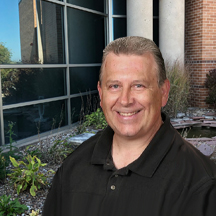


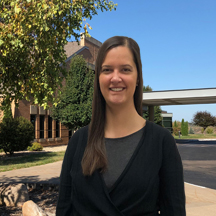
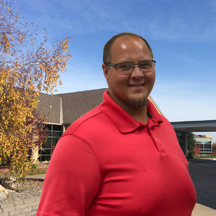
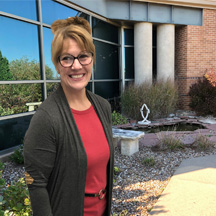
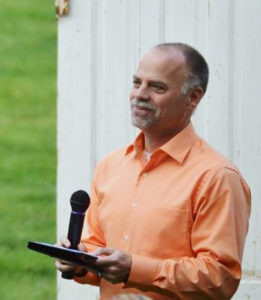
 In that moment, I truly felt Jesus Christ was there telling me, I am with you, I have never left you. I heard Jeremiah 29:11 in my head “For I know the plans I have for you, declares the Lord, plans to prosper you and not to harm you, plans to give you hope and a future” and I cried. Not the tears of despair I had cried so many other times but the tears of relief that I finally understood that Jesus was my restoration and the light out of this darkness. That life would be restored, was being restored, and that I needed to let go of my version of restoration and let my life be led by Christ because it would be better than it was before. I began to pray differently. His will, His way, His timing, not mine became part of my daily walk and talk at the cross.
In that moment, I truly felt Jesus Christ was there telling me, I am with you, I have never left you. I heard Jeremiah 29:11 in my head “For I know the plans I have for you, declares the Lord, plans to prosper you and not to harm you, plans to give you hope and a future” and I cried. Not the tears of despair I had cried so many other times but the tears of relief that I finally understood that Jesus was my restoration and the light out of this darkness. That life would be restored, was being restored, and that I needed to let go of my version of restoration and let my life be led by Christ because it would be better than it was before. I began to pray differently. His will, His way, His timing, not mine became part of my daily walk and talk at the cross. Personally, the more closely I follow God, the more time I spend in His Word and prayer, the more I become aware that like these steps I have real problems. I have a flesh deeply corrupted by sin. God’s restoration process has begun, but will not reach completion until one day I receive a new body, one that is not corrupted by sin. Paul describes God’s restoration project of us this way in Romans 6:4-5: “We were therefore buried with him through baptism into death in order that, just as Christ was raised from the dead through the glory of the Father, we too may live a new life. For if we have been united with him in a death like his, we will certainly also be united with him in a resurrection like his.”
Personally, the more closely I follow God, the more time I spend in His Word and prayer, the more I become aware that like these steps I have real problems. I have a flesh deeply corrupted by sin. God’s restoration process has begun, but will not reach completion until one day I receive a new body, one that is not corrupted by sin. Paul describes God’s restoration project of us this way in Romans 6:4-5: “We were therefore buried with him through baptism into death in order that, just as Christ was raised from the dead through the glory of the Father, we too may live a new life. For if we have been united with him in a death like his, we will certainly also be united with him in a resurrection like his.”